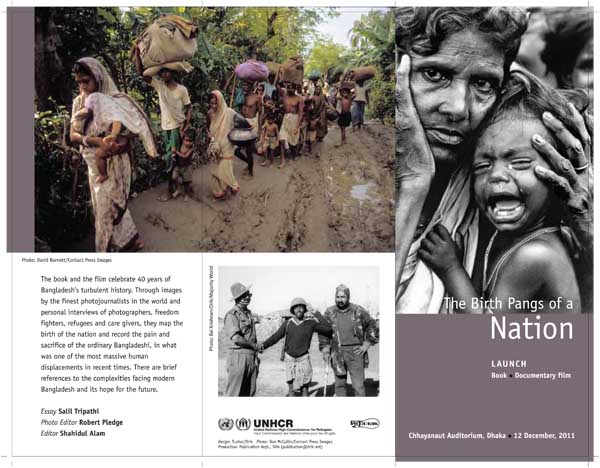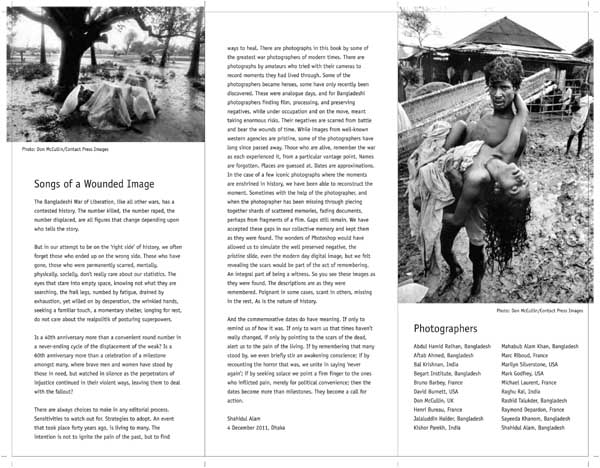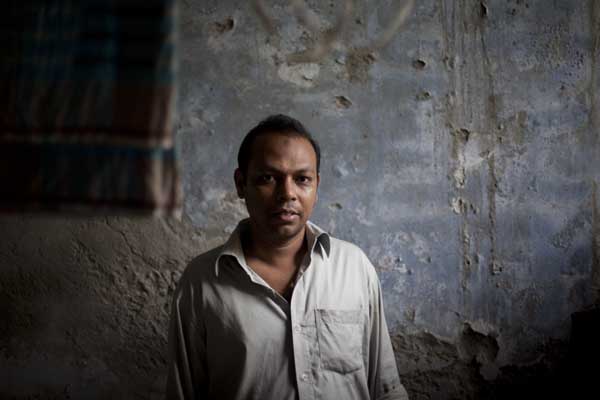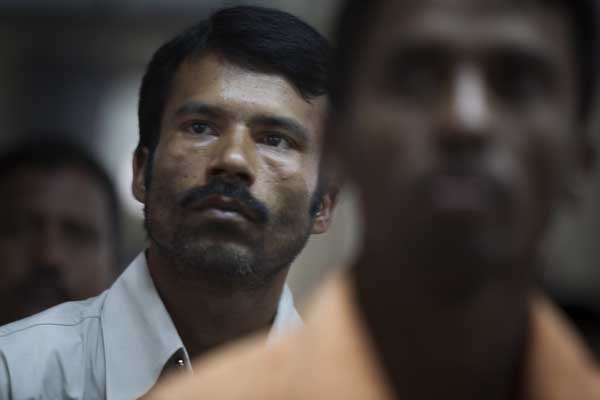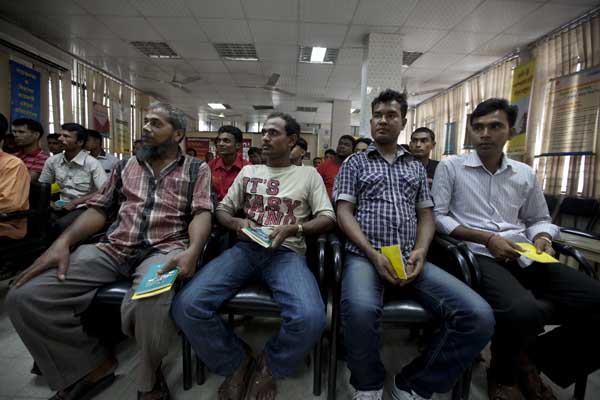Beautifully illustrated,?
My Journey as a Witness, is the first publication of over two decades of Shahidul Alam?s photography. This inspiring personal journey offers unique, insider perspectives on Bangladesh and its many messages of struggle and triumph. Borrowing from the concept of blogging, it is a chronological account ? in words and images ? of a photographer, teacher and activist living in one of the most impoverished countries in the world, and his attempts to engage with international media, while challenging the categorization of his people as icons of poverty. It also documents an entire artistic movement of photojournalists fighting the establishment in Bangladesh. Through personal stories, essays, poetry and photographs, Alam is testimony to the complexities of living and working in an environment where the personal is always political. This book also dwells on the organizational methods that have allowed the remarkable Drik photo agency to survive and excel in an international setting. In the backdrop are the personal and emotional tensions that inevitably arise where political goals are often achieved at the cost of individual needs.
About the book
This book showcases Shahidul Alam?s photographs, more than 100 color and black and white plates illustrating the journey of an artistic, social, and political witness from inside Bangladesh. This groundbreaking work retraces his personal vision spanning three decades and provides the best interpretative and investigative angles into a culture and reality that is otherwise often misunderstood in the West. Using photography and journalism as its parameters, it is the first comprehensive vision of Bangladesh. These images are not ?about? the region from a European perspective, nor are they an ethnographic account of an ex-colonial world. Instead, this volume is an ?on-the-ground? insight, exploring its topography with decidedly competent indigenous eyes. A personal ?way of seeing? ? the journey of a witness ? this book offers a reflective picturing of national and geographical truths, where the ?other? is no longer a stranger. Alam provides a purposeful alternative to the media driven images of poverty and destruction, literally defying received notions of the Subcontinent. After many years of struggle, he is a pioneering catalyst, inspiring development from within his ?majority world?; founding an artistic movement that cannot be silenced: the emergence of local photographers, achieving an intimacy with their subjects that truly understands and so rivals Western perceptions.
Alam?s image making carries its editorial eloquence far beyond its subject matter. For over 30 years, he has led the way in developing photography as a discipline in Bangladesh, producing an entirely new generation of acclaimed artists in the international arena. His writing style is personal, sometimes fast paced, often reflective, with magnificent imagery interwoven throughout the narrative.
Purchase?My Journey as a Witness here
About the author
Shahidul Alam is a photographer, writer, curator and activist. He obtained a PhD in chemistry at London University before switching to photography. He returned to his hometown Dhaka in 1984, where he photographed the democratic struggle to remove General Ershad. A former president of the Bangladesh Photographic Society, Alam set up the award winning Drik Agency, the Bangladesh Photographic Institute, and Pathshala, the South Asian Institute of Photography; considered one of the finest schools of photography in the world. Director of the Chobi Mela International Photo Festival and chairman of Majority World Agency, Alam?s work has been exhibited in galleries such as?MOMA in New York, the Centre Georges Pompidou in Paris, the Royal Albert Hall in London and The Museum of Contemporary Arts in Tehran. A guest curator of the National Art Gallery in Malaysia and the Brussels Biennale, Alam?s numerous photographic awards include the Mother Jones and the Andrea Frank Awards. He has been a jury member in prestigious international contests, including World Press Photo, which he chaired. An Honourary Fellow of the Bangladesh Photographic Society and the Royal Photographic Society, Alam is a visiting professor of Sunderland University in the UK and principal of the South Asian Media Academy in Dhaka, Bangladesh. A prominent social activist Shahidul Alam is also a promoter of new media and has lectured and published widely on photography, new media and education, in the?USA, Europe, Africa, Asia, Australia and Latin America.

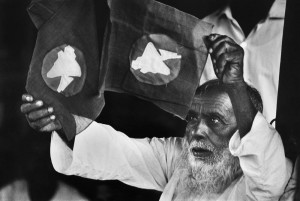
 Shahidul Alam, ‘Ilish fishing’. Image from book. ? Shahidul Alam.
Shahidul Alam, ‘Ilish fishing’. Image from book. ? Shahidul Alam.
